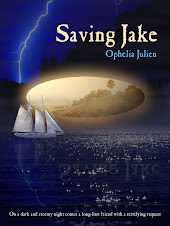I am currently taking
a continuing education class at my local community college. It meets once a
week, will only have four sessions, and is entitled “Shipwrecks of the Great
Lakes.” I may have mentioned this before and if I have, apologies. It turns out
that the instructor for this class also teaches a three-week class on The
Edmund Fitzgerald. He did mention that the Edmund Fitzgerald is the second-most
famous shipwreck in history. The first, of course, is The Titanic.
That being said, when
I mention to people that I am taking classes in this sort of thing, I usually
get raised eyebrows, a look of confusion, and the question Why? I guess the answers to that would be the same as it would be
for anyone taking a class in the history of hockey, the politics in the court
of Louis the XVI, or Mediterranean dishes that are keto-friendly. The first one
would be, Why not? The second would
be, because I’m fascinated by this.
And the thing is,
writers should be fascinated by a
variety of things. We should explore all kinds of quirky and possibly
off-the-beaten path subjects, or our writing will dry up and turn to dust.
Seriously. Studying shipwrecks brought Jake Holdridge to my doorstep. Studying
cholera in Illinois gave me the second book in my series. (A very gory,
disturbing crime story brought me the first. I didn’t need to pursue that
stringently at all; the particulars of that crime stuck with me after reading
one account of it.) I sometimes wonder when knitting, Celtic history, and/or
martial arts will turn up in one of my books.
Exploring varied and
sometimes strange subjects helps to feed the imagination and the memory.
Without either, a fiction writer will have a very short career! Most successful
novels, if you think about them, are not just about the struggles the main
character encounters and how he or she deals with them. They may also include
other subplots that delineate or explore obscure facts from history: try
anything by Clive Cussler, James Rollins, Preston and Child, or Steve Berry. Or
they may segue into something so necessary and yet so mundane that no one even
thinks about it. A great many cozy writers will have heroes or heroines that moonlight
in solving crime while going about their very ordinary jobs. Diane Mott
Davidson gave her readers a pretty decent background on how to run a catering
business around detective work, with recipes included. Susan Wittig Albert
touches on her protagonist’s past life as a trial lawyer as well as her current
incarnation as an herbalist and shopkeeper. But in order to do this, both of
these authors need to have a decent foundation in what it takes to cater
events, or defend the accused and run a small shop.
I can’t claim to have
solid career experience of any kind in my background. I have gone from office
work, to sign language interpreting, to special education, and then to
healthcare, never sticking long enough at any one of those to get a real depth
to my work, but maybe to give me enough to be included in a book.
And so there are the
classes.
If you are a writer,
you owe it to yourself and to your readers to be as accurate and well-researched
as possible when including those varied topics in your work. And if you’re a
reader, well, my best hope as a writer is to show you a reasonable presentation
of what I have lived, or what I have been studying. Good thing I love taking
those classes!






establishment game titles, related to Craps, Blackjack on-line and Roulette. You get chips and have fun with at times against the home or possibly in opposition to other opponents. Virtually all of modern on the web on line on line casino sport titles incorporate software
ReplyDeleteasikqq
dewaqq
sumoqq
interqq
pionpoker
pelangiqq
hobiqq
paito warna terlengkap
http://192.254.236.33/asikqq78/
datahk 2019